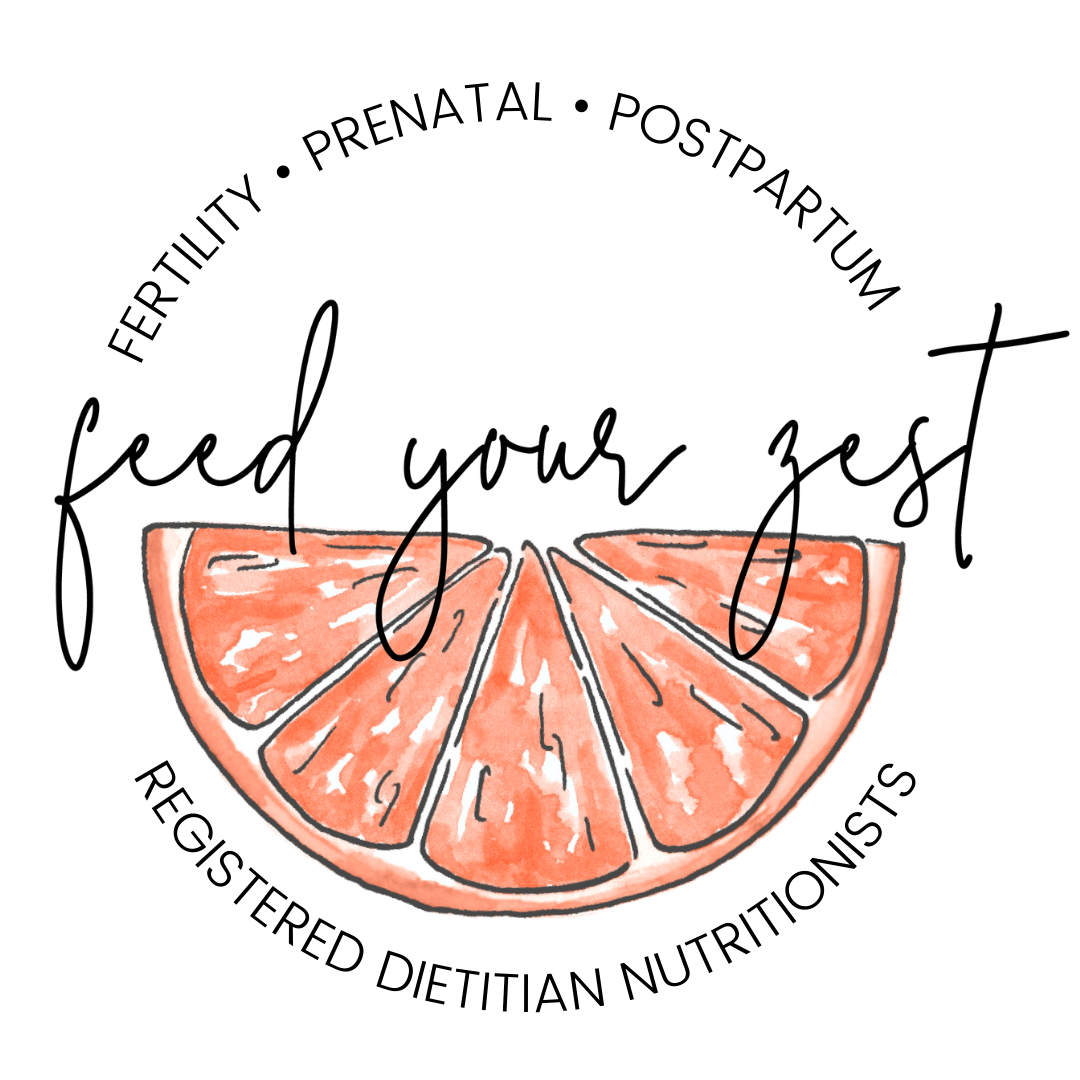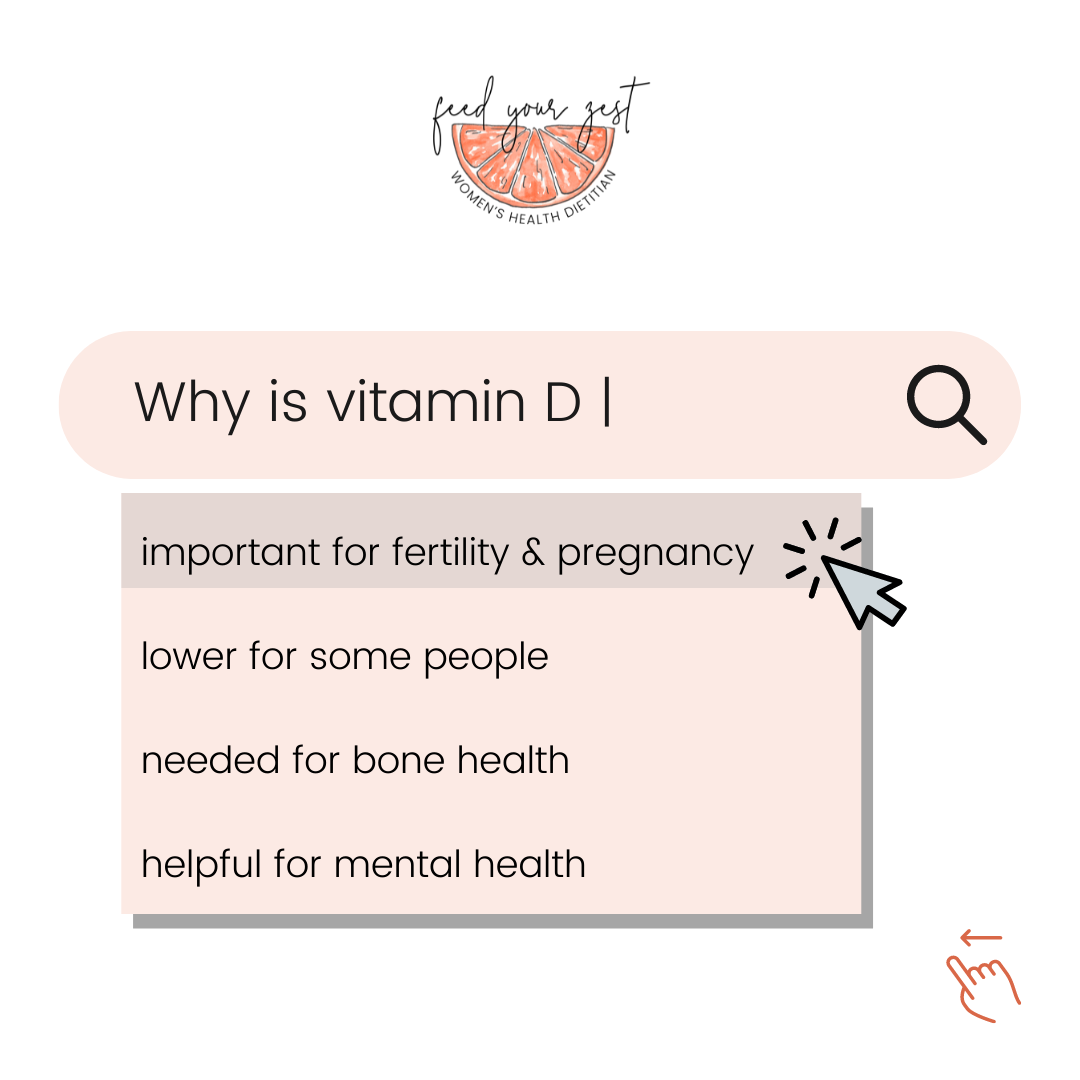Why vitamin D is important for fertility and pregnancy
Daylight savings time has officially ended – and we are ALL feeling it. Less sunlight in the afternoon and evening means a lot of us are starting to struggle with the winter blues. Which makes this posts’ topic very relevant…
Have you had your vitamin D levels checked lately? If not, you might want to think about it!
Why is vitamin D important?
Vitamin D is essential for human health. It is important for a well-functioning immune system, balanced blood sugar, bone health, and mental health, too. On top of that, vitamin D plays a crucial role in reproductive health. Adequate levels of vitamin D in your blood have been shown to:
· reduce risk of pregnancy loss
· improve implantation in IVF
· lower risk for gestational diabetes
· lower risk for preeclampsia
· absorb calcium from food for bone health
· lower risk for perinatal depression
· support proper immune function
In my practice, I make sure to have all my clients screened for vitamin D deficiency. That’s because up to 42% adults in the United States are deficient in vitamin D – that’s a lot!
What are the risk factors for vitamin D deficiency?
Well, we’re covering vitamin D in November because of the waning daylight – and that’s because skin exposure to sunlight converts vitamin D to its’ active form. Interestingly, one study from Northern countries shows higher pregnancy rates in summer and autumn, suggesting more sunlight exposure may play a role in fertility – with adequate vitamin D levels during those seasons being the likely suspect. Super cool, right?
So, naturally – living in a place that gets less sunlight during certain parts of the year is one risk factor for vitamin D deficiency. In the US, the 37th parallel (a line of latitude running from the Bay Area in California all the way through the border of Virginia and North Carolina) divides the nation into two geographic areas, where those living North of this line are not exposed to enough direct sunlight during winter months to maintain adequate vitamin D levels.
Having darker skin increases your risk of Vitamin D deficiency as well – melanin acts as a protective barrier on the surface of the skin, but unfortunately keeps UV light from converting vitamin D to its active form. Rates of vitamin D deficiency jump to 69.2% in Hispanic adults and 82.1% in African American adults.
If you stay indoors a lot, work night shifts, or wear long sleeves and pants for religious reasons, this can also impact your exposure to sunlight and put you at risk for vitamin D deficiency.
Additionally, eating a diet low in vitamin D (common among vegans and vegetarians), having a digestive disorder that impacts your absorption of vitamin D, or having liver or kidney disease can also lead to a deficiency.
How do I get more vitamin D?
Luckily, there are ways to both prevent and treat vitamin D! We can do so by consuming more foods rich in vitamin D like:
· Whole cow’s milk or fortified plant milks
· Fatty fish, particularly, salmon, trout and sardines
· Eggs with the yolk
· Mushrooms exposed to UVA/B light
Supplementation with vitamin D is the most effective way to treat a deficiency, and might be necessary for some folks with a history of vitamin D deficiency or with certain risk factors in order to maintain adequate blood levels. In pregnancy, I recommend all of my clients at minimum choose a prenatal vitamin that contains vitamin D as your needs will increase. It’s important to consult your doctor or dietitian about supplementation to make sure you’re getting enough vitamin D, but also to make sure you’re not over-doing it. Vitamin D toxicity is possible!
On top of working with 1:1 clients to make sure they’ve got adequate vitamin D stores in their bodies for optimal fertility and pregnancy outcomes, I’ve got an exciting new resource that I launched earlier this month as well!
In my online program, Fully Nourished Pregnancy, I walk you through how to stay on top of all sorts of lab values, vitamin D included, and how to put together a supplementation regimen that is right for your body! We also cover ways to incorporate vitamin D rich foods, and how to set goals to maintain these awesome new health behaviors you’re starting. With a private, members-only Facebook group and monthly Zoom Q&A sessions with me (a prenatal dietitian), you’ll get ample support along the way to achieve a truly healthy pregnancy.
Click here to learn more about Fully Nourished Pregnancy and sign up!




